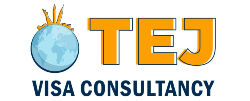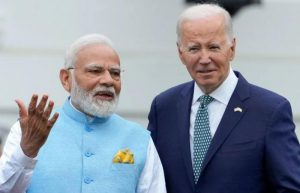Requirements to Study in Germany for Indian Students (2024)

- Studying in Germany for Indian students presents a unique opportunity to experience world-class education and cultural immersion.
- Many talented international students, including numerous Indian students, choose Germany to enhance their academic and research skills. In fact, Indian students are the largest group of international students in Germany. According to official statistics, 42,578 Indian students were studying in Germany during 2022/23.
- If understanding the process of studying in Germany as an Indian student has been challenging for you, we have compiled a comprehensive guide to help you achieve your goal of studying here.
Here are the steps and requirements to study in Germany for Indian students:
1. Find a University and Program
- First and foremost, you must determine what kind of field and program you want to study in Germany. With over 423 recognized higher education institutions offering more than 17,000 courses, the options are vast. However, clarity in your future goals is crucial.
- While conducting online research to compile a list of universities and course offerings is an option, it can be time-consuming. Alternatively, you can use our comprehensive database of German universities to streamline the process.
- Next, review the course offerings of these universities to find ones that align with your academic goals. Create a shortlist of universities and courses that best suit your needs.
- Take your time during this stage; it’s essential not to rush your decision. Begin gathering information well in advance, ideally a month or two before the application period opens.
2. Prepare Application Requirements
– Now that you have set your goal, it’s time to know what you need to do to achieve it. Begin by checking the entrance requirements of your chosen university.
– Visit the university’s website and thoroughly review the entry requirements section. Take notes as needed and create a step-by-step plan to fulfill each requirement. If there’s anything you don’t understand about the procedures, never hesitate to reach the university by email and ask them a few questions.
- Entry requirements for Indian students seeking to study in Germany vary between universities and depend on the chosen course. However, here are some of the main requirements for different degree programs in Germany:
- Bachelor’s Degree in Germany Requirements for Indians
- Here are the most common requirements for Indian students seeking a bachelor’s degree in Germany.
- Higher Education Entrance Qualification (HZB).
The minimum Indian qualification requirements for direct subject-restricted admission to a bachelor’s degree program in Germany are as follows:
- With a school-leaving qualification or pre-university examination score of 50% or better, plus at least one successful academic year at a higher education institution, you qualify for direct subject-restricted admission in your previous academic area or a related subject.
- With a school-leaving qualification or pre-university examination score below 50%, completing both parts (Main and Advanced) of the Indian Institutes of Technology’s Joint Entrance Examination qualifies you for direct subject-restricted admission in technology and natural sciences areas at German universities.
- Official transcripts and academic certificates
If issued in any other language, these documents must be translated into English or German by a certified translator.
- APS certificate
Issued by the Academic Evaluation Centre (APS India).
- Feststellungsprüfung (if you attended Studienkolleg)
Provide the University Entrance Assessment Test (Feststellungsprüfung) certificate with subject summaries and grades.
- Proof of language proficiency
Submit official language test results or other accepted proof of proficiency in English or German, as required by the program’s language of instruction.
- Motivation letter & letter(s) of recommendation
These might be included in your application; however, they’re not always required by universities.
- CV/Resume
Submit an up-to-date CV or resume highlighting your academic achievements and work experience if applicable.
Ø Requirements to Apply for a Master’s Degree in Germany
- The most common application requirements for Indian students planning to apply for master’s in Germany are:
- Higher Education Entrance Qualification (HZB)
The minimum Indian qualification requirements for direct subject-restricted admission to a master’s degree program in Germany are as follows:
- Completed a minimum 3-year bachelor’s program. This qualifies you for direct subject-restricted admission in the same or related subject area.
- Completed a 4 to 4.5-year bachelor’s program. This grants you direct general admission to academic studies in any subject area.
- Official transcripts and academic certificates
If issued in any other language, a certified translator must translate these documents into English or German.
- APS certificate
Issued by the Academic Evaluation Centre (APS India).
- Proof of language proficiency
Submit official language test results or other accepted proof of proficiency in English or German, as required by the program’s language of instruction.
- Motivation letter & letter(s) of recommendation
These might be included in your application, but they’re not always required by universities.
- CV/Resume
Submit an up-to-date CV or resume highlighting your academic achievements and work experience if applicable.
- Academic prerequisites
Some programs may have specific academic prerequisites or requirements. For example, some engineering programs may require advanced mathematics knowledge demonstrated from your previous studies.
Ø Requirements to Apply for an MBA in Germany
- Requirements to apply for a Master of Business Administration (MBA) in Germany are generally the same as with master’s degrees, with a few additional criteria:
- Work experience
Many programs require relevant work experience, typically ranging from 1 to 3 years or more, especially for Executive MBA programs.
- Standardized tests
While not as common as in the United States, some programs may require the GMAT or GRE. However, this requirement is often optional.
Ø Requirements to Apply for a PhD in Germany
To pursue a PhD in Germany, you’ll generally need to meet the following eligibility criteria:
- Academic degree recognized in Germany
You need to have a master’s degree in a relevant subject or a German state examination (Staatsexamen).
- Copy of your master’s thesis
- Research proposal
Submit a comprehensive research proposal in your field of interest as per the university/research institute’s specifications.
- Statement of purpose
Write a statement of purpose detailing your reasons for pursuing a PhD, your research interests and goals, relevant experiences, and how the program fits into your career plans.
- CV/Resume
Include your contact information, academic background, research experience, publications, presentations, awards/honors, teaching experience, relevant skills, professional affiliations, and references.
- Academic references
You may need to provide contact information or recommendation letters from professors or academic advisors.
- Predoctoral examination
Some programs may require you to pass a predoctoral exam as part of the application process.
- Proof of language proficiency
While not universally required for PhD applicants, you might need to submit official language test results scores to demonstrate proficiency in German or English.
3. Undergo the University Application Process for Indian Students
- When applying to German universities, you may need to go through the University Application Process, which includes applying via Uni-assist if the desired university participates in the program. Some universities have their own application portals. In such cases, you may still be required to have a VPD (preliminary review documentation) by Uni-assist.
- The specific application process, whether through Uni-assist or directly to the university, will be specified on the university’s website.
- As for deadlines, the application period for the winter semester (starting in September/October) typically runs from early May to July 15th, while for the summer semester (starting in March/April), it runs from early December to January 15th.
4. Receive the University Admission Letter
- Once you’ve submitted your application and met all the necessary requirements, including providing academic transcripts, language proficiency test scores, and any other documents requested by the university, the admissions committee will review your application.
- If your application is successful and you meet all the criteria, you will receive an official admission letter from the university. This letter confirms your acceptance into the program you applied for and provides important details such as the start date of your studies, any conditions of admission you must fulfill, and instructions for enrollment. You will also need this as proof of admission when applying for a German visa.
5. Apply for the German Student Visa for Indian Students
- For higher education studies in Germany, you must apply for a student national visa (D-visa). Once in Germany, you may need to apply for a residence permit to extend your stay for the duration of your studies.
- To schedule a visa appointment, contact the German mission responsible for your area of residence in India (New Delhi, Bengaluru, Chennai, Kolkata, or Mumbai). Most of them take appointments through the VFS booking portal.
- On the date of your appointment, you will have to submit 2 sets of the following visa application documents:
- Valid passport
Issued within the last 10 years, with at least one year of validity and two empty pages.
- Completed application form and declaration
- Declaration for additional contact and legal representation information
- A copy of your passport’s data page (A4 size)
- Statement of purpose or motivation letter
- APS certificate
- Proof of admission to your study course/preparatory college
It must indicate the language of instruction (original + 2 copies).
- If not confirmed by the university
Proof of language proficiency (at least B2 level) in the language of instruction (only through certificates approved by the German government).
- Certificates of all academic qualifications
Original + 2 copies.
- CV
- Proof of financial means
Confirmation of a German/EU scholarship/stipend,
- “Verpflichtungserklärung” (formal obligation letter) from a sponsor living in Germany, or
- Blocked account with 11,208 euros for the first year (more on this below).
- If tuition fees apply
Proof of funds for the first two semesters (university payment confirmation, education loan, or an unblocked deposit in addition to the required 11,208 euros).
- 3 passport pictures.
According to biometric specifications (not older than six months).
- Travel health insurance
Valid from arrival in Germany until enrollment at the university (approximately three months).
- Proof of health insurance
If receiving a stipend from public funds: proof of health insurance meeting German requirements (private German health insurance, public German health insurance with additional travel coverage, or private foreign health insurance including specific policy details).
- Health Insurance for Indian Students In Germany
Most Indian Students in Germany Prefer DR-WALTER.
The tariff EDUCARE24 by DR-WALTER is suitable for the following groups of people:
- Foreign exchange students, language students and students participating in university preparatory courses (Studienkolleg)
- University students
- Participants in exchange programmes (e.g. ERASMUS, DAAD, SOKRATES)
- Trainees
- Accompanying family members
· German Blocked Account for Indian Students
Indian students in German universities must have at least €934 per month or €11,208 per year in possession. There are several ways (mentioned above) you can prove financial resources required to cover your studies in Germany, with the blocked account being the most popular.
6. Find Accommodation in Germany
- Once you’ve applied for your student visa, it’s time to start looking into accommodation options in Germany. Begin your search by exploring various possibilities, such as student halls of residence, shared apartments (WGs), or private apartments. Useful resources like WG-Gesucht, Studenten-WG, and ImmobilienScout24 can help you find available listings.
- Once you’ve identified potential options, make sure to apply promptly and stay actively engaged in communication with landlords or potential flatmates. Keep in mind that demand for accommodation can be quite high, especially in popular cities, so flexibility is key during your search.
Facts about Current Indian Students in German Universities
As of the 2022/23 academic year, the number of Indian students enrolled in German universities stands at 42,578, making them the largest group of international students in the country, surpassing China and Syria.
- The most popular fields of study among Indian students in Germany include:
- Legal, economic, and social sciences
- Engineering
- Mathematics, natural sciences
Indian students are particularly drawn to STEM (Science, Technology, Engineering, and Mathematics) fields in German universities due to the high demand for skilled workers in STEM fields.
Germany’s favorable immigration policies, including the Blue Card system, make it even more attractive for Indian students pursuing careers in STEM fields post-graduation.
In fact, Indian citizens were the largest group of recipients of Blue Cards issued between 2012 and 2017, according to Destatis.
Popular German Universities for Indian Students
While numerous institutions in Germany welcome Indian students into their programs, some of the most popular universities, chosen by Indian and other international students, include:
- Technical University of Munich
- Ludwig Maximilian University of Munich
- Heidelberg University
- RWTH Aachen University
- University of Gottingen
- University of Hamburg






